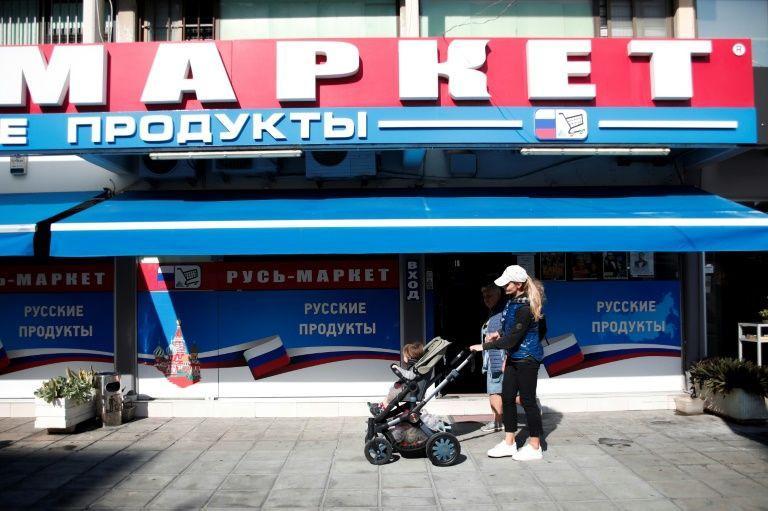
Buscovite pensioner Svetlana Bogomilova emerges from a Russian grocery store into the Mediterranean sunshine near the Limassol beachfront in Greek Cyprus.
“It is very convenient here,” the retired teacher told AFP as a family with a pushchair strolled by chatting in Russian. “There is everything you could need.”
Across the European Union’s most easterly member it is easy to spot the influence of the island’s sizeable Russian-speaking community.
In the seaside city of Limassol -- the main magnet for those coming to Greek Cyprus from the former Soviet Union -- posters promote concerts by Russian stars while adverts in Cyrillic offer elite flats. Money from the former Soviet region has helped spark a mini-building boom, and the number of new arrivals just keeps on rising.
Now, beyond the newspapers, schools and radio station blaring the latest Russian pop across the island, there is a striking new addition.
Two Russian-speaking businessmen have launched a political party they hope will help shake up the island, raising eyebrows in a country with deep ties to Moscow.
Russian investor Alexei Voloboev insists he never dreamt of getting involved in the insular world of Greek Cypriot politics when he became a citizen 10 years ago. But he says the rise of an ultra-nationalist party at 2016 legislative elections changed that.
Last year the former restaurant and radio station owner registered Ego o Politis (Me the citizen) -- a party he hopes will attract Greek Cypriots and get the largely disengaged Russian community involved.
“We have provided a breath of fresh air for the Russian-speaking community,” Voloboev said at the party’s still empty headquarters in the capital Nicosia. “We have shown that we can change something here, if we want.”
There are no exact figures on the number of Russian speakers who can vote in Greek Cyprus.
Voloboev says 1,000 people have already applied to join the party and says it will gain a base among some 35,000 Greek Cypriot passport holders, while double that number are resident on the island. Others say the number is smaller -- but it could still prove a sizeable chunk in a country with only 550,000 registered voters.
The party is not fielding a candidate in a presidential election to be held on Jan. 28, but aims to run in European Parliament elections next year. Its rise comes as alleged Kremlin meddling in Western democracies dominates global headlines.
But Voloboev and vice president Ivan Mikhnevich, an IT entrepreneur from Belarus, laugh off any suggestion they are doing Moscow’s bidding as “anti-Russian hysteria.”
“If I wanted to build Russia then I would go back and live in Russia,” said Voloboev.
“I absolutely don’t want it to be like Russia here. I left that country. It isn’t my country anymore. Cyprus is my country.”
Neither speak Greek but they insist their centrist, pro-European party is a genuine platform for all Greek Cypriots wanting to modernize the country -- and prove their expat community is coming of age. The financing, they say, comes from “members of the party -- including businessmen, average people.”
Linked by a shared Orthodox Christian heritage, Greek Cyprus and Russia have long had deep political and economic ties.
In 2011, as the Cypriot economy floundered, the Kremlin handed Nicosia a crucial 2.5-billion-euro lifeline that Cyprus is still paying back.
The Russian-speaking community has flourished on the island since businessmen from the former Soviet Union began using the country’s lax banking system to park their money in the mid-1990s. Since then it has undergone a shift as the community has settled more permanently on the island.
A brutal financial crisis in 2013 saw many lose money as the government imposed a haircut on accounts at two of the country’s largest banks. But since then the numbers have only grown as tax incentives have lured IT firms from the former Soviet Union, and a fast-track cash-for-investment scheme has drawn wealthy Russian speakers.